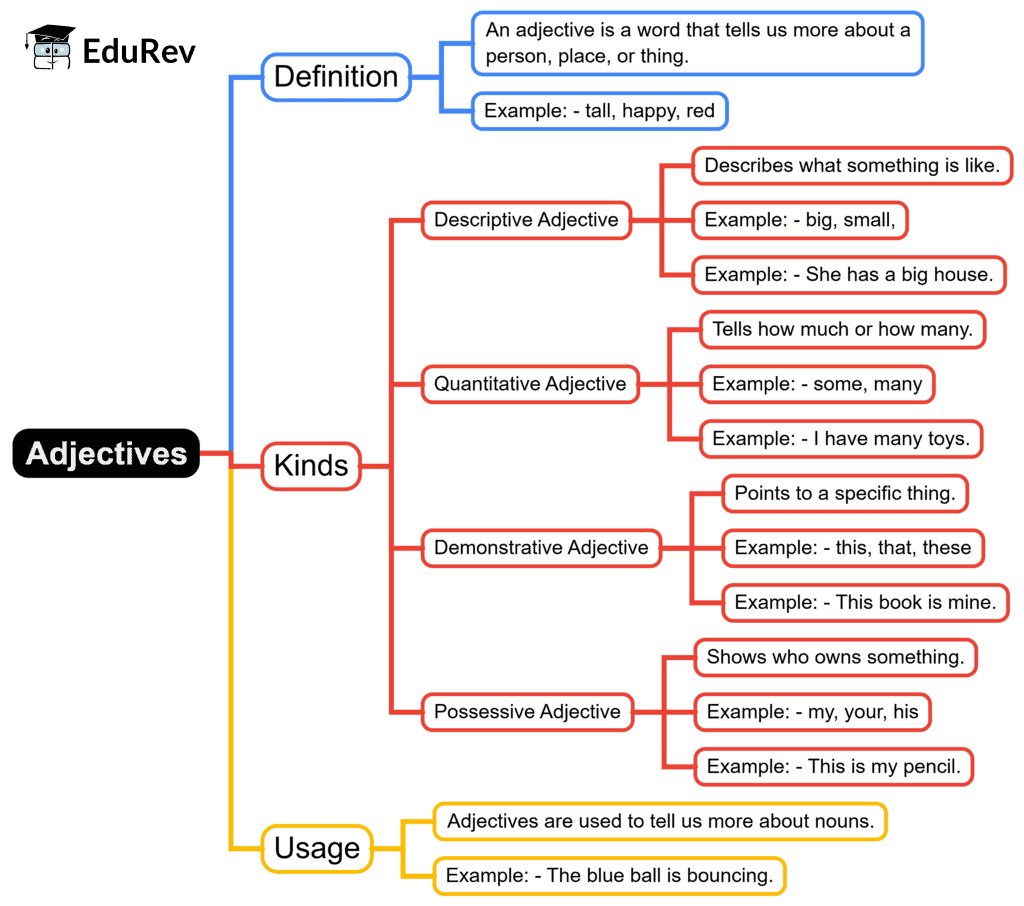Class 1 Exam > Class 1 Notes > English Grammar for Junior Classes > Mind Map: Adjectives
Mind Map: Adjectives | English Grammar for Junior Classes - Class 1 PDF Download

The document Mind Map: Adjectives | English Grammar for Junior Classes - Class 1 is a part of the Class 1 Course English Grammar for Junior Classes.
All you need of Class 1 at this link: Class 1
|
18 videos|189 docs|31 tests
|
FAQs on Mind Map: Adjectives - English Grammar for Junior Classes - Class 1
| 1. What are adjectives and why are they important in English? |  |
Ans.Adjectives are words that describe or modify nouns, providing additional information about them, such as their qualities, quantities, or states. They are important in English because they enhance sentences by making them more vivid and specific, allowing for clearer communication and better expression of ideas.
| 2. How can I identify adjectives in a sentence? |  |
Ans.To identify adjectives in a sentence, look for words that answer questions like "What kind?", "Which one?", or "How many?" about a noun. For example, in the sentence "The tall building is impressive," "tall" is an adjective describing the noun "building."
| 3. Can adjectives be used in comparative and superlative forms? |  |
Ans.Yes, adjectives can be used in comparative and superlative forms to compare differences between the objects they modify. For example, "tall" becomes "taller" in the comparative form and "tallest" in the superlative form, as in "She is taller than her brother" and "She is the tallest in her class."
| 4. What are some common types of adjectives? |  |
Ans.Common types of adjectives include descriptive adjectives (which describe qualities, such as "happy"), quantitative adjectives (which indicate quantity, like "some"), demonstrative adjectives (such as "this" and "those"), and possessive adjectives (like "my" and "your"). Each type serves a unique purpose in sentence structure.
| 5. How do adjectives affect sentence structure and meaning? |  |
Ans.Adjectives affect sentence structure and meaning by adding detail and specificity to nouns. They can change the overall impression of a sentence; for example, "The dog is friendly" conveys a different meaning than "The dog is aggressive." Thus, careful use of adjectives can enhance clarity and emotional impact.
Related Searches
















